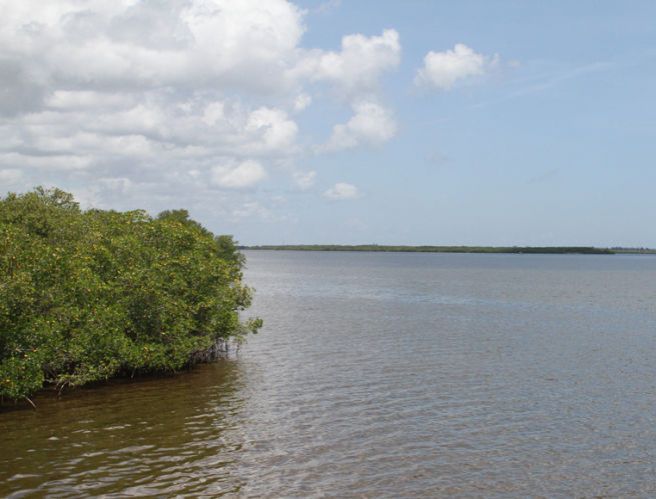
INDIAN RIVER COUNTY — The County Commission Tuesday evening passed a strong fertilizer regulation ordinance that includes a complete ban on phosphorous and a rainy-season blackout period that prohibits application of nitrogen from the beginning of June through the end of September, when heavy downpours are more likely to wash fertilizer into the lagoon.
The ordinance, which was approved around 7:30 p.m. during the longest commission meeting in recent memory, mandates use of nitrogen that is at least 50-percent slow-release to help keep chemicals from leeching into groundwater and requires lawn-care professionals who apply fertilizer to take a state-regulated training course and be licensed.
In a related motion, commissioners voted to hire a new county employee to enforce the ordinance and increase environmental education efforts. People violating the ordinance by putting fertilizer down in the summertime will be given an initial warning then fined for subsequent violations.
Commissioner Tim Zorc said Wednesday the amount of the fine has not been determined but that it would be high enough, “to get someone’s attention.”
The action was a victory for environmentalists who have pressured the commission for a year to regulate fertilizer use in the county to lessen the amount of poisonous chemicals flowing into the lagoon where the ecology has begun to collapse over the past two years.
Until recently, the commission refused to pass any kind of fertilizer ordinance, but in July outgoing County Attorney Alan Polackwich informed the board it was required by state law to put regulations in place.
Several weeks ago, after a meeting in which dozens of people spoke in favor of a strong ordinance, the commission gave initial approval to the state model ordinance with several additional provisions to make it stronger, but then turned around in a second motion and exempted professional fertilizer applicators from following the added provisions if they take the state mandated training course.
“It is unbelievable they would pass something like that,” Dr. Richard Baker, University of Florida biology professor emeritus and president of the Pelican Island Audubon Society, said at the time. “It is like saying that because you pass the driver’s education course, you don’t have to follow traffic laws.”
This time around, the commission voted unanimously to give final approval to the ordinance they passed earlier but to remove the exemption for professionals.
As soon as that motion was approved, Commissioner Peter O’Bryan made a second motion to add the rainy-season blackout period, which environmentalists say is the most important element of strong, effective fertilizer regulation.
O’Bryan’s motion passed 3-2, with Commissioners Joe Flescher, Zorc and O’Bryan voting in favor.
With the ban approved, the new ordinance closely mirrors the Sarasota Model, a landmark set of regulations passed in Sarasota County seven years ago that is considered the gold standard of good water-quality protection legislation by scientists and environmentalists.
The new regulations will go into effect as soon as the ordinance is drafted and recorded by the Florida Secretary of State and a simple one-page explanation of its provisions is posted on the county website.
Commissioner Zorc said today that he has been getting mostly positive feedback on the commission’s action.



